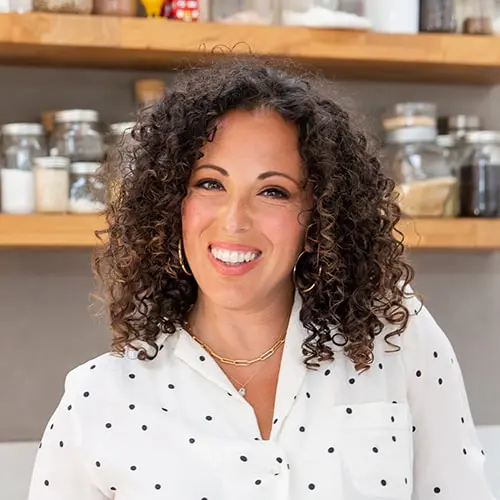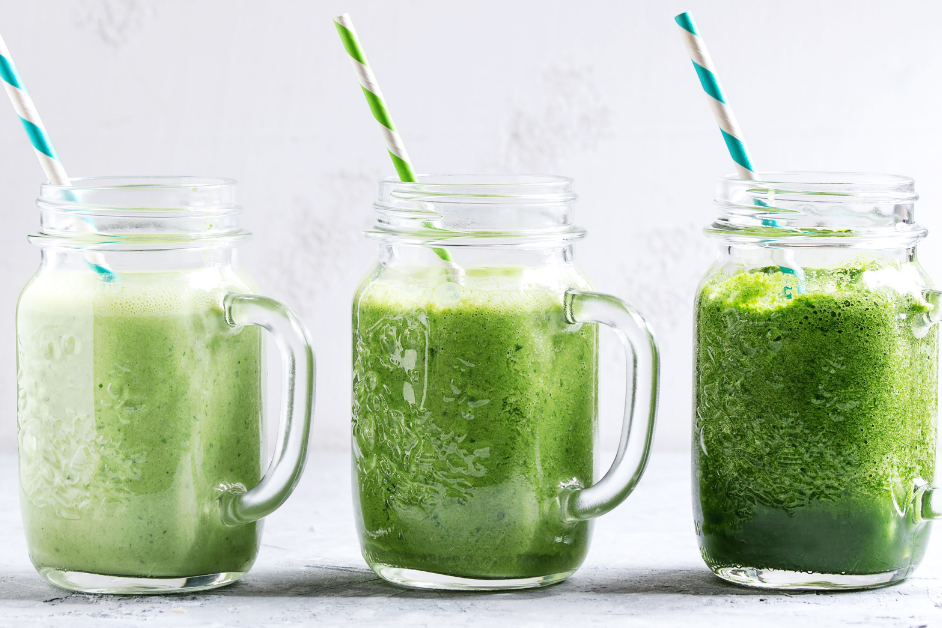When a patient visits me for the first time with inflammatory bowel disease (IBD)—ulcerative colitis or Crohn’s—they’re usually in bad shape.
They have abdominal pain and cramping, diarrhea, fatigue, and other problems, such as visible blood in the stool.
In other words, they’re experiencing an IBD flare.
People who suffer with ulcerative colitis or Crohn’s experience usually have flare-ups when symptoms are much worse, as well as periods of remission, when their symptoms go away. It can be frustrating and hard to have a “normal” life.
When patients come to me for IBD treatment, the first step is to get the patient out of the flare so we can focus on putting the IBD into remission- for good.
In this blog post I’m going to dive into what I do to treat IBD naturally. We can get lasting remission without the use of medications, as seen in this real-life success story from one of my patients. But, first, a word of caution.
Do NOT try this at home!
There’s a very strategic order of operations. If you do any of the things I mention in this article in the wrong order, you can make yourself worse.
Much worse.
For example, if a patient is in a severe flare I might not throw betaine hydrochloride, a digestive aid, at them until later. If they take betaine hydrochloride during an IBD flare it can make things worse.
That’s why it’s so important to work with a functional medicine provider.
I can’t say it enough: If you have ulcerative colitis or Crohn’s, get yourself a good functional medicine practitioner.
Okay, with that out of the way, let’s briefly recap what IBD actually is and the symptoms it causes.
What Is IBD?
Inflammatory bowel disease refers to conditions like ulcerative colitis and Crohn’s disease. These conditions are linked to ongoing inflammation in the gastrointestinal tract. In ulcerative colitis, patients develop inflammation and lesions on the lining of the large intestine and rectum. Crohn’s disease is a type of IBD that involves the lining of the digestive tract. Crohn’s usually involves inflammation in deeper layers of the digestive tract compared to ulcerative colitis.
What Causes IBD?
IBD is an autoimmune disease believed to be caused by an abnormal immune response to gut microbiota or food in susceptible people. In IBD, the immune system malfunctions and attacks the cells in the gastrointestinal tract. The cells in the intestines are innocent bystanders but the immune system thinks they’re foreign invaders. The primary cause and the triggers of IBD are still unknown.
IBD may have a genetic component, since it occurs in some people who have family members with the disease. However, most IBD patients don’t have a family history of the disease.
IBD risk factors include:
- Younger Age – Most people with IBD are diagnosed before the age of 30, but some patients don’t develop the condition until they’re in their 50s or 60s.
- Family History – People with a close relative who has IBD are at higher risk of the condition.
- Cigarette Smoking – This is a risk factor for Crohn’s disease.
- Nonsteroidal Anti-inflammatory Medications (NSAIDS) – Anti-inflammatory drugs like ibuprofen (Advil, Motrin, etc.) and naproxen sodium (Aleve) as well as others in this class may increase the risk of developing IBD or worsening the condition in people who already have it.
Inflammatory Bowel Disease Symptoms
IBD symptoms are different depending upon how severe your inflammation is and where it’s located. IBD patients usually go back and forth between disease flares and periods of remission.
Symptoms of ulcerative colitis and/or Crohn’s include:
- Abdominal pain
- Blood in the stool
- Constipation, especially when inflammation occurs in the rectum.
- Diarrhea
- Fatigue
- Poor appetite
- Unintended weight loss
IBD Complications
Ulcerative colitis and Crohn’s disease share several complications. These include:
- Increased risk of blood clots
- Increased risk of colon cancer
- Increased risk of primary sclerosing cholangitis, a condition that causes scarring within the bile ducts, leading to liver injury.
- Inflammation of the skin, eyes, and joints
Patients with IBD also take medications that can have side effects. For example, corticosteroid drugs increase the risk of osteoporosis and high blood pressure, as well as other conditions.
Possible complications of Crohn’s disease:
- Anal fissure, a small tear in the tissue lining the anus.
- Bowel obstruction
- Fistulas. Inflammation leads to these abnormal connections between different body parts. In Crohn’s, fistulas can develop near the anal area and may become infected.
- Malnutrition
Possible complications of ulcerative colitis:
- Dehydration caused by frequent diarrhea.
- Toxic megacolon, a condition where the colon rapidly widens and swells.
- Perforated colon, a hole in the colon that often occurs due to toxic megacolon.
Fight The Flare
The first thing I do for a patient who’s in the middle of an IBD flare is to begin an anti-inflammatory protocol while at the same time ordering important tests. The two goals at first:
- Prevent tissue inflammation
- Bring symptoms into remission
One of the best ways to calm the tissue inflammation and get out of flares is the specific carbohydrate diet (SCD). The SCD diet is a whole-foods diet including vegetables, fruit, fish, meat, nuts, beans, and healthy fats and oils. It excludes sugars, processed foods, preservatives, all grains, starchy vegetables, and lactose. In patients with diarrhea, I’ve really seen the SCD make a HUGE difference. The elemental diet is also very useful for seven to 10 days. An elemental diet is a liquid formula providing all of the basic nutritional elements you need for health, in a form that your body can easily absorb. One clinical trial of 23 patients with ulcerative colitis found that 56% went into remission on an elemental diet and nearly half of those remained in remission for 7 to 28 months.
Even if the patient isn’t gluten sensitive, I urge the patient to go on a gluten-free diet. Gluten promotes leaky gut, a condition that will stop a patient from going into remission. Mostly, I encourage any patient in an IBD flare to go on a paleo-type diet, with no gluten and no carbs.
For patients in flare mode, I also recommend a Chinese herbal formula called Yunnan Paiyao. In addition, I put them on high-dose DHEA to support the adrenals as they withdraw from corticosteroid drugs.
It’s also important anyone with diarrhea take electrolytes like magnesium and potassium. And Epsom salt baths and butyrate enemas are a part of my anti-flare strategy.
Interpreting Test Results and Treating Accordingly
While making those initial changes to diet and supplements, I order a number of tests in IBD patients. These include stool tests, as well as tests to find out if a patient is nutrient deficient, and tests for markers of oxidative stress, methylation, and neuroinflammation. Figuring out a person’s specific problem areas helps build a protocol precisely for their needs.
Oxidative stress is what you might know as free radical damage. Oxidative stress happens when free radical production goes out of control. Inflammation from IBD can cause oxidative stress in the colon.
Methylation is an important process that affects many bodily functions. People can have genetic defects in methylation. These defects are linked to the development of IBD. Often the genetic defect involves the inability to metabolize the folic acid form of the B vitamin folate. We get around this by giving patients a special form of folate that can bypass the pathway needed to use folic acid. This special form of folate is called 5-MTHF.
You’re probably wondering what neuroinflammation has to do with IBD. Well, one is inflammation in the brain and the other is inflammation in the gut. I am interested in markers of neuroinflammation in IBD patients because of the gut-brain axis. What’s happening in the brain is linked to the gut and what’s happening in the gut is linked to the brain.
Stool testing is another important test in patients with IBD. Stool testing detects parasites, an imbalance in the gut microbiome, and fungal infections—all of which can impact your gut health. This type of testing can let me know if specific types of good bacteria are lacking. In this way, I can build up what’s missing in the gut by giving high-dose probiotics, fiber, prebiotics and more to patients who need them.
Adrenal Testing
I order adrenal hormone testing for my IBD patients. Adrenal testing is important because the adrenals make the stress-hormone cortisol. Many patients with IBD are vulnerable to mental stress, which can make IBD attacks worse or even knock someone out of remission.
Patients who are in a flare and on corticosteroid drugs cannot take the adrenal test right away. This type of drug raises cortisol levels and will throw off adrenal test results. In this case, I may have to wait until symptoms are more controlled and the patient can wean off of corticosteroids. I also take them off high-dose DHEA. Only then am I able to test adrenal function.
Mycotoxins Testing
In the past, I only ordered mycotoxin tests in IBD patients who were not getting results from the usual treatments. But now, after years of treating IBD patients, I’ve noticed there’s a strong connection between toxins made by mold (mycotoxins) and ulcerative colitis.
Yes, this is a thing. Even studies published in medical journals confirm it.
That’s why I no longer wait to test IBD patients for mycotoxins. Instead, my attitude is usually: let’s just get ahead of this and deal with mycotoxins if they are a problem.
Food Sensitivity Testing
Food sensitivities are an important factor in IBD. They can trigger inflammation in the gut. They can stress the immune system so that it malfunctions. They can promote intestinal permeability, or leaky gut.
In IBD patients, there could be two things going on:
- Actual food sensitivities where you have an immune reaction to certain foods.
- Foods irritating the gut without causing any immune reaction. In this case, the irritation and inflammation occurs in a biochemical way. These types of foods are still difficult to digest or are feeding the bad bacteria even if you’re not actually having an immune reaction to them.
The type of food sensitivity testing I like to use not only tests for IgE and IgG but also other aspects of food sensitivities, such as complement. This helps me capture food reactions that are immune-mediated and those that are not.
How To Stay in Remission During IBD
Best Diet For IBD
Conventional “wisdom” says you shouldn’t eat salads and fiber when you have IBD.
Wrong. Very wrong.
You eventually want to emphasize roughage and fiber so you’ll have the prebiotics you’ll need to feed the beneficial bugs in your gut. But timing is everything.
During the remission phase, the goal is to emphasize resistant starch and various types of prebiotics. This type of starch feeds the good bacteria in your colon. I personalize this plan based upon the results of your microbiome testing. The key is to choose prebiotics that only feed the good bacteria, not the harmful ones.
When in remission, expand your diet a little compared to when you were in a flare. Dairy and gluten probably are only going to make things worse. But you can add other things back into your diet one at a time and watch how you react.
The key? Choose foods less likely to cause a flare-up. Avoid gluten, dairy, eggs, nuts, and seeds.
Identify Your IBD Triggers
Another helpful strategy during remission? Focus on preventative management of your stress. For example, if you know you get stressed around the holidays, be proactive and plan ways to reduce your stress such as extra self-care during that time of the year.
The key is to pinpoint your triggers. Do your flares only happen in the winter? Then we need to find out what’s causing them. At that time of year I also want to look at vitamin D levels to make sure yours aren’t too low.
The Best Type of Exercise for IBD
Healthy exercise is also important. By healthy I mean don’t overdo it, especially if you have IBD. Aim for mild cardio three times per week but focus more on weight training, which can help build the microbiome and reduce inflammation.
On the other hand, too much intense cardio (more than 30 minutes), can increase inflammation and spike cortisol levels. Intense cardio can boost levels of an inflammatory protein known as IL-6. High levels of IL-6 are linked to IBD flares.
When you do any cardio exercise, aim for shorter walks or hikes in nature.
Dietary Supplements for IBD
Each of my patients with inflammatory bowel disease has a different supplement protocol customized to their test results and where they are in the course of the disease. Here are some of the supplements I may use in IBD patients:
- Yunnan Paiyao, a Chinese herbal formula for inflammation.
- High-dose probiotics
- Prebiotics
- Liposomal glutathione, which as an antioxidant reduces oxidative stress. In the early stages of treatment, I prefer this over the glutathione precursor N-acetyl cysteine (NAC) because NAC can thin the gut lining.
- Nutrients that show up deficient on testing such as B vitamins.
- Curcumin or turmeric extract to reduce inflammation.
It’s Critical To Work With a Functional Medicine Provider
As I mentioned earlier, if you try to treat yourself you could really make things worse.
Or you could delay your recovery.
There’s an order of treatments that need to take place and this order is unique to each patient.
That’s why I invite you to reach out to me for a free 15-minute troubleshooting call to find out the best course of action for you. If after the call you come on board as a patient, I’ll order the right tests for you and start you on an anti-inflammatory protocol.
The goal is to get you into a long-lasting IBD remission. My protocol has worked on many patients and it’s very effective, but it may take time. At first, you might take one step forward and two steps back. But with persistence, testing, and modifying your protocol, we can find the winning combination to turn off your IBD. In the end, we can calm your gut’s inflammation and get your digestive tract feeling comfortable and healthy again.
If you’d like to see an example of how this approach can bring lasting remission, read a real-life case study of one of my patients with UC (coming soon).
At the Reverse-Age Method, we believe in a holistic approach to perimenopause and beyond, that addresses the root causes of your symptoms (like insomnia, hot flashes, night sweats, erratic periods, fatigue, skin aging, weight gain, and brain fog)– to also slow the pace that your cells are aging. Whether it’s improving gut health, optimizing detox function, enhancing mitochondrial function, or building muscle mass, our comprehensive program has got you covered.
If you’re new here, be sure to check out our Blog Page for more insights and tips on how to thrive during perimenopause. Our blog is packed with practical advice, success stories, and the latest research to help you on your journey.
For more updates and community support, follow us on social media:
You May Also Like...
All About Food Sensitivities – New Cutting Edge Test Available! (KMBO FIT Test)
One of the primary tenants of Functional Medicine is to identify triggers for inflammation and reduce exposure.…
Veggie Smoothie Recipe
Smoothies make for an easy way to start the day but if you throw in a few cups of tropical fruit and some juice….and…
Whether you’re looking for help with your gut, your hormones, or both, our team of practitioners work together to treat the WHOLE you – guiding you to a healthier mind, body, and spirit day by day.



